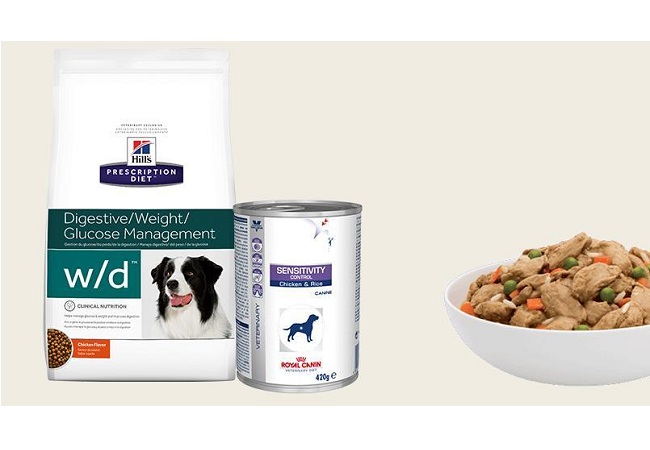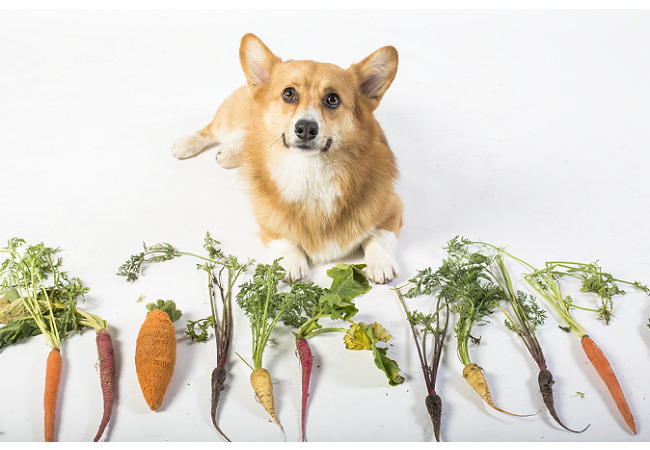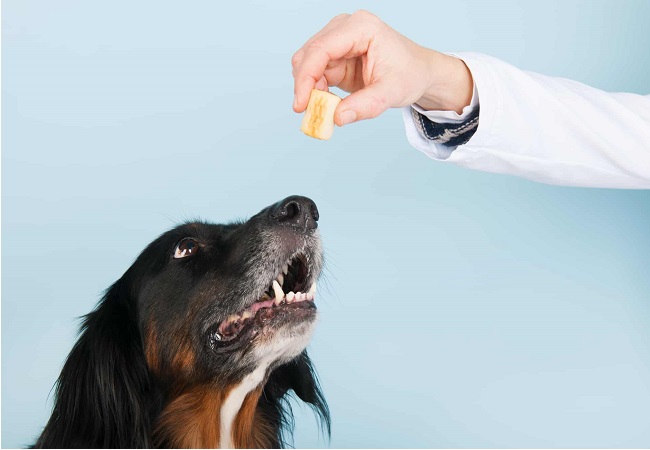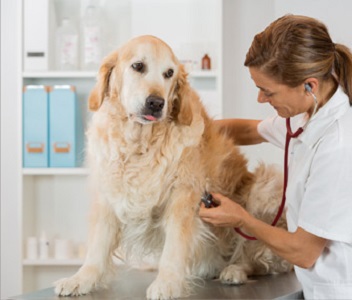With several dog food brands, coming up with Special formulas or Limited Restricted Diets, there pops up a curious question, Does Your Dog Need A Veterinary Diet?
If you are here reading this blog post means that you have either received a prescription for recommended Veterinary Diet.
Or you have just come across a dog food bag in the store that reads a therapeutic Nutrition!
So, to begin with, your question, Does Your Dog Need A Prescription Diet? Then the answer is yes!
So, your dog’s veterinarian has prescribed a therapeutic diet, with good reason.
Keeping in mind your dog’s optimum state of health and treating any underlying medical or nutritional deficiency conditions.
Our blog post covers all such curious queries and information that you would want to know about Veterinary Diet.
We have also covered commonly asked questions about dog food and nutrition and have researched reliable information sources.
Contents
Classifications of Diets Available for Dogs

Before we further dive into our answer for why is a veterinary diet required for our pets.
We should know that there are, three broad categories of dog food (Dog Diets or Recipes) that can be used to feed our pets.
Conventional and Commercial Dog Food
The conventional commercial dog diets are the ones available over the counter in pets stores and local stores.
Popular commercial foods are produced with chicken, beef, lamb, or fish products.
It also has grains such as maize, wheat, rice, barley, and/or oats, and added vitamins and minerals.
These dog food are produced by these products to ensure a satisfactory final diet, that meets the Daily allowance of your pet.
These foods are developed for particular stages of life, such as puppies/kittens, adults, or all stages of life.
So the commercial dog food diets need to be picked as per the life stage of your dog. And need to be fed as per the feeding instructions given on the label.
Check the dog food for a statement from the Association of American Feed Control Officials (AAFCO) that the food is “complete and balanced.”
Veterinary therapeutic diets or Prescription Rx Diets
Veterinary therapeutic diets are also known as Prescription diets. These diets are scientifically formulated to meet your dog’s health needs.
Prescription dog foods are only available with a veterinarian’s prescription for dog owners.

They are different from over-the-counter dog food products. and they help with health conditions such as arthritis, obesity, and allergies to food.
These diets are closely monitored by a veterinarian, even if that diet contains nutrient levels safe for healthy pets.
Some of the companies that sell top Veterinary diet products include Hill’s Science Diet, ROYAL CANIN Size Health Nutrition, Purina Pro Plan Dry Dog Food, etc.
Home-prepared diets
Many owners occasionally prefer to prepare food for their pets themselves.
Nutrition consultations by veterinary Nutritionists”, are still recommended for home-prepared diets, because not all of the ingredients will suit every dog breed.

These professionals discuss the home-prepared diets option for individual pets, depending upon various factors.
They can recommend various homemade diet formulation, with organic and raw food ingredients.
Such diets can be added supplementary to commercial dog food or can be completely replaced by commercial diets.
Depending upon the age/breed and health conditions or allergies for your dog.
Why does my dog need a Veterinary diet?
Veterinary diets are recommended by vets when a dog suffers from a certain kind of health problem.

The Veterinary diet helps to keep the nutritional elements balanced and completed so that the health issues of your dog can be remedied while ensuring optimal nutrition.
For instance, if your dog has gastrointestinal problems, a low-fat diet can be recommended by the vet.
Several other conditions can influence, some dogs may need a special diet when they’re older and their kidneys aren’t working well as they should.
Or if your dog gets diagnosed with kidney stones, the veterinary doctor might prescribe a diet that maximizes urine output.

A Vet can recommend your dog a veterinary or prescription diet under the following health conditions such as:
- Seizures/ Dog Epilepsy
- Gallbladder problems
- Kidney Stones
- Food Allergies
- Obesity
- Dermatological Issues
- Chronic Arthritis
- Dental Diseases.
Why Your Vet Needs to Inspect Your Dog’s Veterinary Diet
Know that the veterinary diet has certain formulations that are just characteristic to it and are treatment based.
When you feed this diet, you need to consult with your veterinarian and make sure that the health of your dog is checked regularly.

At some point, you will need to change the food.
If your dog’s symptoms are fixed, you will be able to easily transition to a non-prescription diet.
It is strongly recommended not to stop veterinary diets on their own without consulting Vet.
Feeding a therapeutic diet to a dog that does not need it, can lead to more health problems.
As per Dr. Dan Su, a clinical nutrition resident at the University of Tennessee in Knoxville, “Kidney disease diets are low in phosphorus, which is not ideal for a healthy animal that has no kidney disease.”
So consistently going to the Veterinarian and also noting down observations for any changes in the actions of your dog is important.
And if nutrition is part of the solution, then it is best to do that: go on a diet with a prescription.
Facts About Veterinary Dog Food
Even among veterinarians, there are different opinions regarding prescription dog foods.
Hill’s was the early founder of these diets and they are now the best brand in this segment.
The veterinary diet is designed not only to help improve your dog’s wellbeing, but they are also easy to digest and provides ingredients for optimum absorption, such as chelated minerals.
To purchase one of these foods, you need to have a prescription from a Vet, but you don’t actually have to buy them from your vet clinic or any specific Animal hospital.
You can buy the recommended veterinary food online, with the provided prescription.
Other Considerations When Feeding a Therapeutic Diet
There are few important things to keep in mind while you’re feeding your dog a therapeutic diet.
One is to stop mixing other foods in it. “For maximum efficacy, most therapeutic diets are intended to be the exclusive source of nutrition.
It is also not advisable to add human food, as it will change the food’s formulation dramatically and decrease the diet’s effectiveness.
Carefully read their labels on the food bags and check their ingredients and dry matter percentages, and feed accordingly.
If your dog refuses to eat their new veterinary diet, vets claim it to be the loss of appetite due to their underlying disease and not the food.
A therapeutic diet plus medicine can solve this situation.
Makers of most prescription or veterinary diets also urge precautions against their diet’s long-term feeding.
Most of these diets are highly low in specific nutrients and are not meant to be fed on a long-term basis, as there may be severe deficiencies.
Related FAQ
Why do veterinary diets cost more?
The reason veterinary diets cost more or are expensive than the over counter dog food because they are specially designed to solve a specific health problem.
They often tend to include components that are normally not found in pet foods, but that can improve the overall health of your pet.
What are the nutritional requirements for dogs?
All dogs need proteins, carbohydrates, vitamins and minerals, water, and fats in their diet.
Do prescription diets work?
Yes, prescription dog food or veterinary diets tend to work in many cases when they are properly administered according to the relevant medical conditions of a dog.
Veterinary dog food may often contain an uncommon ingredient in a certain percentage that acts in a body in a specific way as compared to commercial dog foods.
For instance, depending on the type of stone, Hill’s makes three kinds of diets for dealing with bladder stones.
What are some of the best brands of prescription Veterinary dog food?
We recommend the top 5 brands of prescription veterinary dog food that are ranked highest in the USA, as follows,
Hill’s Science Diet, Purina Pro Plan SAVOR Shredded Blend With Probiotics, Royal Canin Veterinary Diet Ultamino Dry Dog Food, Orijen Original Dry Dog Food.
What is the difference between Hill’s Science Diet And Prescription Diet?
Prescription Diet® brand pet foods are formulated to address specific medical conditions that can develop in pets and it requires Vet prescription.
Whereas, Hill’s Science Direct diet does not require any prescription and is promoted for maintaining the optimal health of your pet.
Why Do Vets Not Like Raw Diets?
The American Kennel Club (AKC), the American Veterinary Medical Association, and other organizations along with Vets prohibit pet owners from feeding raw organic diets to their dogs.
Unprocessed meat, eggs, and milk can carry pathogens like E. Coli, listeria and salmonella, which can make people and pets ill or even cause death.
Final Thoughts
So, summarizing our article on, Does Your Dog Need A Veterinary Diet? Then the answer depends on the aspect that,
If your dog has been diagnosed with a severe or short-term illness or is recovering from surgery.
A prescription dog veterinary food recommended by your veterinarian thus can provide targeted nutrition.
While they can be costly, they are intended to be therapeutic, and will best suit your dog’s requirement in illness.
There are some alternatives to prescription formulas, but they can only be taken into account in your veterinarian’s recommendations.
Resources:
- The Ohio State University, Veterinary Medical Center- Guide to how to choose a diet[1]
- 7 Reasons Why Your Dog May Need a Therapeutic Diet.[2]
- Raw Food Diets [3]

Julia is a Board Certified Veterinary Nutritionist, practicing veterinarian in a non-profit animal hospital and feline sanctuary located in Rochester, NY. She is also a full-time veterinary advisor at DogLikesBest. She focuses on writing healthcare-related topics including dog foods, treats, veterinary diets, food for specific healthcare features, etc. Moreover, any article on DogNeedsBest that has to concern feline health in any way, goes under her scrutiny before being published.

